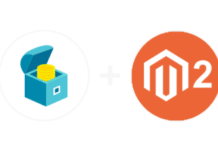Table of Contents
Introduction
What is Marketplace Marketing?
Marketplace marketing is the process of promoting and selling products or services on online marketplaces such as Amazon, eBay, Etsy, and others. It involves a combination of strategies and techniques to increase visibility, attract customers, and drive sales within these platforms.
Importance of Marketplace Marketing
In today’s digital age, marketplaces have become essential channels for reaching a vast audience. Increased revenue, better customer loyalty, and greater brand awareness can all result from effective marketplace marketing. By mastering marketplace marketing, businesses can leverage these platforms to their full potential and stay competitive in a crowded market.
Understanding Marketplace Branding
Definition of Marketplace Branding
The process of giving your goods or services a distinctive identity and image inside an online marketplace is known as marketplace branding. It involves consistent messaging, visuals, and customer interactions that differentiate your brand from competitors.
Key Elements of Effective Branding
- Brand Identity: Your logo, colors, and overall design should be distinctive and memorable.
- Brand Voice: Your communication style should reflect your brand’s personality and values.
- Customer Experience: Ensure a positive and consistent experience for your customers across all touchpoints.
- Trust and Credibility: Build trust through high-quality products, reliable service, and transparent practices.
Setting Up Your Marketplace Strategy
Defining Your Target Audience
Understanding who your customers are is crucial. Do some research on behaviors, tastes, and demographics to properly target your marketing campaigns.
Competitive Analysis
Examine your rivals’ strategies to determine their advantages and disadvantages. This will help you position your brand more effectively and find opportunities to stand out.
Setting Goals and KPIs
Define clear objectives for your marketplace marketing efforts. Set Key Performance Indicators (KPIs) to measure success, such as sales growth, conversion rates, and customer acquisition.
Choosing the Right Marketplace Agency
What is a Marketplace Agency?
A marketplace agency specializes in helping businesses succeed on online marketplaces. They offer services such as listing optimization, advertising management, and strategy development.
Benefits of Hiring a Marketplace Agency
- Expertise: Agencies have specialized knowledge and experience in marketplace marketing.
- Time-Saving: They handle complex tasks, allowing you to focus on other aspects of your business.
- Better Results: Professional agencies can drive better performance and higher returns on investment.
How to Choose the Right Agency
- Experience: Look for businesses in your industry that have a history of success.
- Services: Check to see if they offer the services you need.
- Reputation: Examine customer reviews and endorsements.
- Cost: Compare pricing and ensure it fits your budget.
Optimizing Your Marketplace Listings
Importance of Product Listings
Well-optimized product listings are crucial for visibility and sales. They help customers find your products and make informed purchasing decisions.
Best Practices for Product Titles
- Keywords: Use relevant keywords that customers are likely to search for.
- Clarity: Make titles clear and descriptive.
- Length: Keep titles concise but informative, typically between 50-80 characters.
Writing Compelling Product Descriptions
- Features and Benefits: Highlight key features and how they benefit the customer.
- Bullet Points: To highlight your products, use high-quality pictures.
- SEO: Incorporate keywords naturally to improve search rankings.
Utilizing High-Quality Images
- Resolution: To highlight your products, use high-quality pictures.
- Angles: Provide multiple angles to give customers a complete view.
- Consistency: Make sure the style and tone of every picture are the same.
Pricing Strategies for Marketplaces
Understanding Market Pricing
Examine market rates to ensure your pricing is reasonable. Consider factors such as production costs, competitor pricing, and customer expectations.
Dynamic Pricing Strategies
Adjust prices based on demand, competition, and other factors to maximize sales and profits.
Psychological Pricing Techniques
- Charm Pricing: Use prices ending in .99 or .95 to make products appear cheaper.
- Bundling: In order to boost perceived value, provide products in bundles at a lower price.
Leveraging Customer Reviews and Ratings
Importance of Reviews and Ratings
Customer reviews and ratings significantly influence purchasing decisions. Credibility can be increased and sales can be increased with positive evaluations.
Strategies to Encourage Positive Reviews
- Follow-Up Emails: Send follow-up emails requesting reviews after purchase.
- Incentives: Offer discounts or freebies in exchange for reviews.
- Exceptional Service: Provide excellent service to naturally encourage positive feedback.
Managing Negative Reviews
- Respond Promptly: Address negative reviews quickly and professionally.
- Resolve Issues: Offer solutions to resolve customer complaints.
- Learn and Improve: Utilize customer input to enhance your offerings.
Advertising on Marketplaces
Types of Marketplace Ads
- Sponsored Products: Ads that show up on product detail pages and search results pages.
- Sponsored Brands: Ads that showcase your brand logo and products.
- Display Ads: Banner ads that appear on various parts of the marketplace.
Creating Effective Ad Campaigns
- Targeting: To reach the appropriate audience, use precision targeting.
- Compelling Creatives: Create engaging ad content and visuals.
- Budget Management: Allocate budget wisely to maximize ROI.
Measuring Ad Performance
- Click-Through Rate (CTR): Measure the percentage of people who click on your ads.
- Conversion Rate: Track how many clicks result in sales.
- Return on Ad Spend (ROAS): Determine how much money is made for each dollar spent on advertisements.
Utilizing Social Media for Marketplace Marketing
Importance of Social Media
Social media is a powerful tool for driving traffic and engagement to your marketplace listings. Makes it easier to build a brand community and grow your following.
Best Platforms for Marketplace Marketing
- Facebook: Great for targeted advertising and community building.
- Instagram: ideal for digital content and influencer marketing.
- Twitter: Advantageous for customer engagement and real-time updates.
- Pinterest: Effective for showcasing products through images.
Tips for Engaging Content
- Visual Appeal: Use high-quality images and videos.
- Storytelling: Relatable stories should be told to your audience.
- Interactivity: Encourage likes, shares, and comments to boost engagement.
Email Marketing for Marketplaces
Building an Email List
- Sign-Up Incentives: Offer discounts or freebies to encourage sign-ups.
- Pop-Ups: To collect email addresses, use pop-ups on websites.
- Social Media: Promote your email sign-up through social channels.
Crafting Effective Email Campaigns
- Personalization: Address recipients by name and tailor content to their interests.
- Compelling Subject Lines: Create compelling subject lines to boost open rates.
- Clear Call-to-Action: Include a clear and compelling call-to-action (CTA).
Analyzing Email Marketing Performance
- Open Rate: Calculate the proportion of receivers who click through to your emails.
- Click-Through Rate (CTR): Track the number of clicks on links within your emails.
- Conversion Rate: Determine what proportion of email recipients finish the intended action.
Enhancing Customer Experience
Importance of Customer Experience
A positive customer experience leads to higher satisfaction, repeat business, and positive word-of-mouth referrals.
Tips for Improving Customer Service
- Responsive Support: Offer quick and helpful responses to customer inquiries.
- Personal Touch: Personalize interactions to make customers feel valued.
- Problem Resolution: Address and resolve issues efficiently.
Creating a Seamless Shopping Experience
- Easy Navigation: Ensure your marketplace store is easy to navigate.
- Mobile Optimization: Make your store mobile-friendly.
- Fast Checkout: Simplify the checkout process to reduce cart abandonment.
Analyzing Marketplace Performance
Key Metrics to Track
- Sales Revenue: Monitor your total sales and revenue.
- Conversion Rate: Track the percentage of visitors who make a purchase.
- Customer Acquisition Cost (CAC): Determine how much it will spend to bring in new clients.
Tools for Performance Analysis
- Google Analytics: Gives statistics about user activity and website traffic.
- Marketplace Analytics: Use built-in analytics tools provided by marketplaces.
- Third-Party Tools: Consider tools like SEMrush or Ahrefs for deeper analysis.
Making Data-Driven Decisions
- Regular Reporting: Generate regular reports to track performance.
- Identify Trends: Examine your data for trends and patterns.
- Adjust Strategies: Make use of insights to hone and enhance your marketing tactics.
Scaling Your Marketplace Business
When to Scale
- Consistent Growth: Scale when you see consistent growth in sales and customer base.
- Capacity: Ensure you have the capacity to handle increased demand.
- Market Opportunity: Identify new market opportunities for expansion.
Strategies for Scaling
- Diversify Products: Expand your product range to attract more customers.
- Expand to New Markets: Consider selling in additional marketplaces or regions.
- Invest in Marketing: Boost your marketing initiatives to connect with more people.
Common Pitfalls to Avoid
- Overexpansion: Refrain from expanding too soon without sufficient resources.
- Ignoring Data: Make decisions based on facts, not conjecture.
- Neglecting Quality: Maintain product and service quality during growth.
Conclusion
Recap of Key Points
In order to prosper in the digital era, firms must use marketplace marketing. By understanding and implementing effective strategies, such as optimizing listings, leveraging customer reviews, and utilizing advertising and social media, businesses can significantly enhance their marketplace presence and drive sales.
Final Thoughts on Marketplace Marketing
Mastering marketplace marketing requires continuous learning and adaptation. Stay updated with the latest trends, analyze performance regularly, and be willing to adjust your strategies for the best results. With dedication and the right approach, you can achieve remarkable success in marketplace marketing.
Apart from that if you want to know about “Data privacy in digital marketing: how is the industry adapting to ensure privacy expectations?” then please visit our “Technology” Category.



























